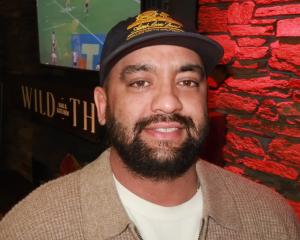Queenstown's Southern Stampede hosted the Canterbury Red Devils at the Queenstown Ice Arena on September 8, supported by more than 500 hockey fans at the sold-out venue.
With both teams tied at the final whistle, five minutes of overtime was played before a penalty shoot-out in which the Red Devils scored a controversial goal.
Queenstown Ice Arena co-owner Daniel Graham hoped the issue would be discussed at the NZIHL meeting on Saturday week.
He said in a regular-season game the shoot-out is an option to end a game in a set amount of time, but international rules for a championship game differ.
"In a championship game, the IIHF [International Ice Hockey Federation] says you play 20 minutes of overtime with four players. That's one less than normal ... it's more than likely someone will score," Graham said.
"It's not to say New Zealand should comply, [but] those are the rules," he said, although he added "I think you will find they will pass that [rule]".
The home final was a first for the Southern Stampede and Graham said the crowd felt "robbed" with what he called an "unnecessary rush" to finish the game.
He acknowledged the Red Devils' win and was not saying the NZIHL was wrong, as the rules under which they played would have been in their handbook, but he is asking for an adjustment.
"It's an amateur league, so this stuff will happen. We just want to ensure it won't happen again."
The extra time may be an issue of ice time, but "it's well worth paying if that's the case ... it should just be put in the budget."
Having just returned from overseas, NZIHL president Grant Hay said he had heard there had been discussion about the championship rule issue but had not seen "anything in writing".
Labour talks between the National Hockey League and union representing its locked-out players broke off yesterday with no progress to report, raising the prospect the first block of regular-season games will soon be cancelled, Reuters reports.
The two sides met for about two hours in New York where they discussed the definition of hockey-related revenue but did not address the core economic issues standing in the way of a new collective bargaining agreement.
"We don't really have any progress to report. As a matter of fact, no progress was made," NHL Deputy Commissioner Bill Daly said.
"Today wasn't overly encouraging, that's for sure."
No further talks between the two sides are scheduled.













